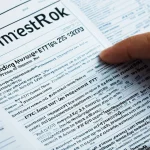Understanding Mortgage Options for Freelancers
Navigating mortgage options as a freelancer requires understanding both the available products and the unique financial landscape freelance work presents. Unlike salaried employees, freelancers face fluctuating incomes, making it essential to explore flexible financing methods designed for them. Standard mortgage options, such as fixed-rate and adjustable-rate mortgages, are available. However, freelancers might benefit more from lender-specific products that consider irregular income streams. Understanding the diversity of available options allows freelancers to choose a financing method that aligns with their financial habits.
Freelancers must uniquely approach financial considerations in the mortgage process. Traditional loans often rely heavily on consistent income verification, posing challenges for those with variable earnings. Lenders require alternative documentation like tax returns from previous years to assess a freelancer’s creditworthiness accurately.
A lire aussi : Understanding how the uk inheritance tax reforms affect family estates: key insights you shouldn”t miss
Comparing standard mortgages with freelancer-specific products helps freelancers select the perfect fit. Standard loans might come with stricter income verification requirements, while freelance-specific loans are tailored for flexibility. By evaluating these differences, freelancers can make informed decisions that suit their financial structure. Familiarizing with these options increases a freelancer’s chances of obtaining a loan that supports their unique working conditions while securing a home.
Eligibility Criteria for Freelancers
Securing a mortgage as a freelancer involves understanding specific eligibility criteria that differ from those for traditionally employed individuals. Due to the nature of freelancing, showing consistent income is often challenging, leading to unique evaluation methods. Lenders frequently require freelancers to provide extensive income documentation, such as multiple years of tax returns. This documentation helps in assessing the freelancer’s income stability and capacity to meet mortgage payments over time.
Avez-vous vu cela : Maximizing your investment: the importance of collaborating with a property consultant for agricultural land acquisition in east anglia
A vital component in mortgage eligibility is the credit score. A freelancer’s credit score proves critical, as lenders use it to gauge financial responsibility and trustworthiness. Maintaining a good credit score and a stable financial history can significantly affect mortgage application outcomes. Ensuring the resolution of any outstanding debts or liabilities before applying can enhance prospects.
Beyond income and credit score, financial stability remains essential. Freelancers may need to demonstrate savings or a well-prepared financial strategy to reassure lenders of their capability to handle possible future income fluctuations. Establishing healthy financial habits and documenting cash flow helps in showcasing robust creditworthiness. Although different for freelancers, understanding and meeting these criteria secure better chances of obtaining a mortgage aligned with their financial journey.
Navigating the Mortgage Application Process
The mortgage application journey can be daunting, especially for freelancers with non-traditional income streams. A clear, step-by-step approach helps in tackling this process effectively.
First, gather essential financial documents. For freelancers, this means acquiring at least two years of tax returns, recent bank statements, and exhaustive income records. Matching your paperwork to the lender’s requirements ensures a smoother review process. Next, review credit reports. Since credit scores significantly impact mortgage approval, resolving discrepancies beforehand is crucial.
Prepare a thorough financial statement highlighting regular cash flow and savings. Demonstrating prudent financial management to potential lenders is beneficial. Seek pre-approval by submitting these documents to different lenders to ascertain eligibility and rates.
Freelancers often stumble on undervaluing their income in applications. Clearly depict all income sources and explain irregularities. Lastly, be proactive in evaluating loan conditions, focusing on interest rates and term flexibility. Remember, not all lenders understand freelance nuances, so choosing those with specific mortgage products for freelancers is vital for favourable outcomes.
Equip yourself with these strategies, embracing transparency and vigilance throughout the mortgage process to secure a suitable financing solution.
Lenders Specializing in Freelance Mortgages
Finding the right lender as a freelancer is pivotal for securing favorable mortgage terms. Financial institutions understanding freelance work offer mortgage products tailored to irregular income streams. Some standout lenders in this space include The Mortgage Works, Kensington, and Bluestone. These lenders assess freelancers’ unique situations and propose flexible solutions.
An important factor in choosing a lender is evaluating available mortgage products. Products such as flexible mortgages or loans catering to self-employed individuals may offer more leniency regarding income verification and payment terms. Lenders specializing in freelance applicants often structure their offerings to accommodate fluctuating cash flows, providing potential benefits like flexible payment schedules.
When selecting a lender, prioritize those who recognize the viability of a freelancer’s income. Essential considerations include the interest rates offered, any requirements for additional income documentation, and the lender’s ability to understand freelance nuances. Furthermore, reviewing feedback from other freelance borrowers can shed light on the lender’s adaptability and responsiveness.
Ensuring your lender choice aligns with your freelancing lifestyle not only optimizes financing options but also fortifies your path towards homeownership as a freelancer.
Expert Insights and Case Studies
Exploring expert advice and learning from real-life case studies can provide valuable insights for freelancers navigating the mortgage landscape. Many freelancers have successfully secured mortgages by strategically managing their finances and working with lenders who understand their unique income structures.
For instance, consider the story of a freelance graphic designer who secured a mortgage by carefully tracking all income streams and diligently maintaining a higher-than-required savings buffer. Her case underscores the benefit of having a flexible and comprehensive financial plan to present to potential lenders.
Experts in the mortgage industry suggest that freelancers focus on transparency when it comes to explaining their income documentation. Clearly outlining income variability and offering detailed insights into financial management can bolster their profiles during the application process.
Testimonials from freelancers highlight the significance of approaching lenders with specialized freelance products. One recent case study showed how a freelance writer achieved mortgage approval by choosing a lender that offered tailored mortgage solutions, illustrating how pivotal it is to select the right financial partner.
Thus, gleaning expert insights and examining successful case studies can provide freelancers with practical strategies and encouragement as they pursue homeownership.
Calculating Affordability as a Freelancer
Determining mortgage affordability is an essential step for freelancers, who must carefully assess their financial situation. Interactive affordability calculators are crucial tools to estimate how much mortgage they can manage. These calculators consider income, expenses, and available down payment, providing a clear picture of financial commitments.
When using a calculator, freelancers must account for their irregular income; integrating peaks and troughs of cash flow offers a more accurate estimate. Key factors such as ongoing financial obligations, savings, and potential interest rates should feed into these calculations to prevent overlooking pertinent aspects of affordability. Equipping yourself with this knowledge aids in developing a robust budgeting strategy.
Effective budgeting is crucial for freelancers, especially those facing fluctuating earnings. Building an emergency fund and planning for income variability ensures preparedness for mortgage payments. Monitoring and adjusting personal spending habits towards prioritising savings can pave a smoother path to affordability.
Freelancers should routinely reassess their budgets in response to changes in their financial situations. By understanding and projecting finances with care, freelancers can ultimately set themselves up for stable, sustainable homeownership. Tailoring a budget aligned with your lifestyle and professional realities enhances decision-making when approaching mortgage commitments.
Common Challenges Faced by Freelancers
Freelancers often face distinct challenges when navigating the mortgage process. One significant hurdle is proving consistent income. Unlike traditional employees, freelancers deal with fluctuating earnings, creating difficulty in meeting standard lending requirements. Many lenders prefer predictable income, adding layers of complexity for freelancers attempting to prove creditworthiness.
Another challenge involves exhaustive documentation. Traditional mortgages require reliable income proof, prompting freelancers to compile extensive paperwork, such as multiple years of tax returns, to establish a credible income pattern. Contrasting payments and expenses over various periods asks for meticulous record-keeping.
Strategies exist to counter these challenges. Begin with a comprehensive financial portfolio showing diverse income streams and stable savings. Highlight long-term contracts or clients to strengthen financial reliability. Prioritize maintaining a strong credit history as it significantly influences mortgage outcomes.
Freelancers can also benefit from seeking specialized lenders familiar with their unique work environment. These lenders provide flexible mortgage options, understanding the nuances of freelance income. Consulting mortgage brokers experienced with freelance clients can further clarify viable paths, offering expert advice tailored to independent workers. Exploring these strategies can streamline challenges and bolster mortgage application success.
Long-term Financial Planning as a Freelancer
Embracing a comprehensive financial planning strategy is essential for freelancers committing to a mortgage. While securing a home loan marks a significant milestone, it’s vital to consider the broader impact on long-term financial health. Integrating mortgage payments into your overall financial strategy ensures stability amidst the inherently variable nature of freelancing income.
Long-term financial health requires freelancers to maintain robust savings and emergency funds, safeguarding against periods of income instability. Regularly setting aside funds not only helps cover unexpected expenses but also aids in consistent mortgage repayments. Monitoring cash flow and revising budgets to align with changing financial situations forms a core part of effective planning.
Taking a mortgage impacts future freelance endeavors, potentially influencing decisions like scaling operations or investing in business growth. Understanding how loan obligations might affect liquidity aids in making informed choices about expanding freelance activities or taking on new projects.
Advice for integrating mortgage payments into your financial plan includes prioritising debt management and strengthening income communications. By regularly reviewing and adjusting your financial strategy, freelancers can better navigate challenges and seize opportunities, reinforcing their path to thriving both in property ownership and professional growth.




